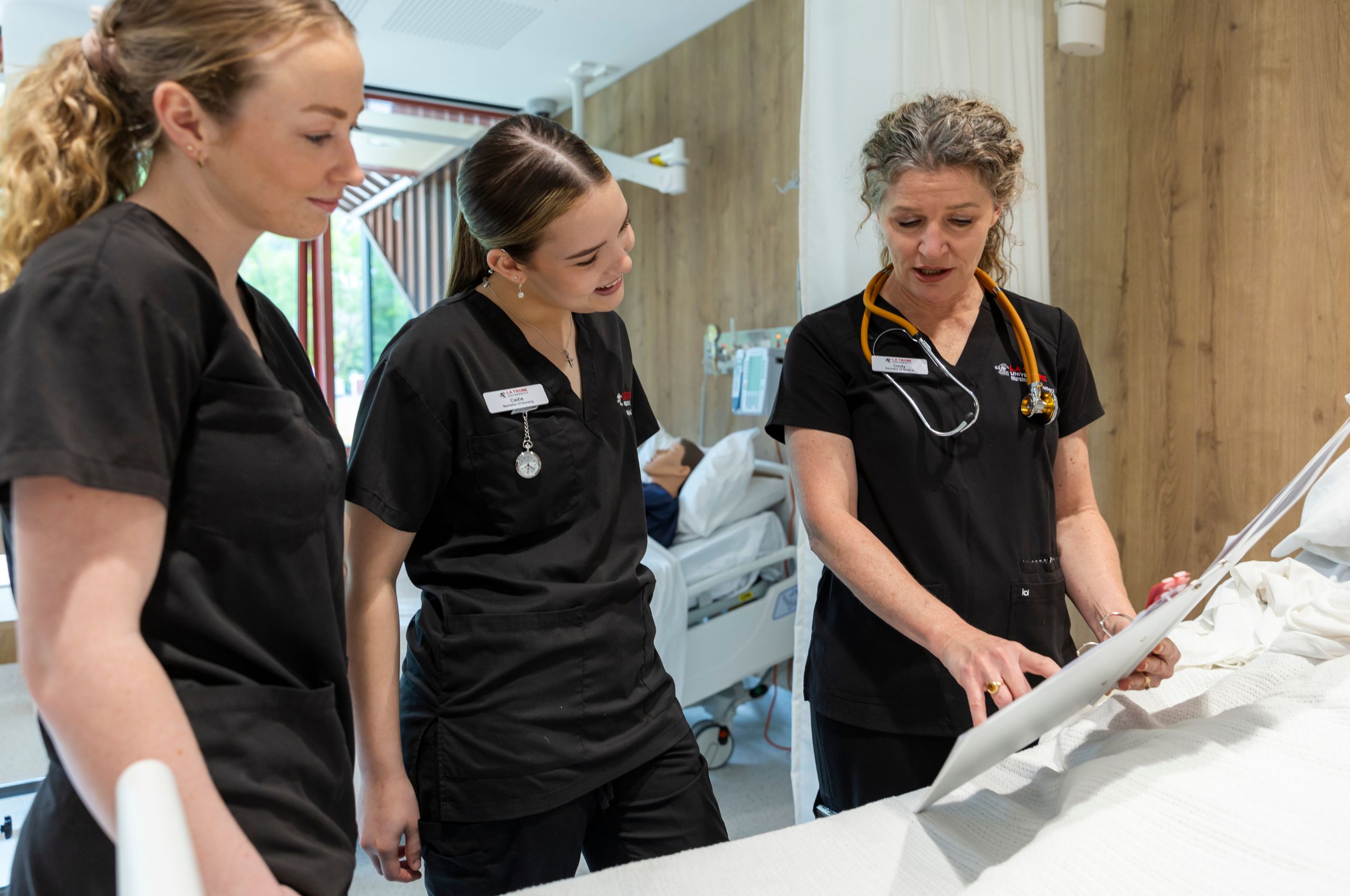About the Department of Rural Health Sciences

The Department of Rural Health Sciences is committed to making rural health and wellbeing matter in nursing and midwifery, and mental health.
Our Department is part of the La Trobe Rural Health School.
Our goal is to graduate work ready health and human services professionals, undertake impactful research, and engage with our communities to promote equitable health outcomes for rural populations.
We offer degrees and short courses at La Trobe University’s regional campuses in Bendigo, Shepparton, Albury-Wodonga and Mildura, and online. These include entry-level nursing and midwifery, health sciences and rural health programs.
We also offer short courses in nursing, postgraduate study in mental health, mental health nursing and rural nursing practice, and a Higher Degree Research program, where students immerse themselves in projects that aim to improve rural health outcomes.
We partner closely with industry to ensure that our clinical placement and fieldwork opportunities give students the opportunity to connect to rural communities and the existing rural workforce.
Our graduates have pursued careers in clinical practice in hospitals, community health clinics, public health administration, and research and innovation.

We work closely with industry partners to ensure our courses and research programs equip graduates with the discipline-specific knowledge and professional attributes to succeed in the health and human service sector.
A skilled workforce pipeline
Whether you are wanting to become a rural nurse practitioner, midwife, or want to develop your skills in a microcredential, a La Trobe degree or short course is the gateway to a rewarding career.
Our courses are designed to provide students with theoretical knowledge, practical skills and industry experience; creating a skilled workforce pipeline to make a difference to rural communities.
Our courses also incorporate elements specific to rural health so that graduates are equipped to become valued professionals and leaders in rural and regional practice.
Our staff are experienced and passionate clinicians, researchers and industry professionals who bring the world of rural health to the classroom.
And, our teaching strategies are innovative and evidence based. Students benefit from experiences in many learning environments including online, in the classroom, in our clinical simulation laboratories and industry settings.
We work with over 180 industry partners to provide clinical placements and learning opportunities for our students from their first year of study. Students have opportunities to forge networks and build professional connections while studying.
Our Higher Degree by Research students work on projects that focus on achieving health and wellbeing outcomes for rural people, improving clinical practice, supporting health professionals and transforming rural healthcare.
Rural health research
Our researchers work collaboratively with industry and the community, to connect research to practice, and create outcomes that benefit rural health services and rural communities.
Much of our work focuses on the unacceptable gap in health outcomes between rural and metropolitan communities.
We work on primary care and multidisciplinary models of healthcare; healthcare service development; mental health and addictions; sexual and gender-based violence; child family and community health; improving management of chronic conditions across the lifespan; and strengthening rural health workforce and health education.
Research Centres and Initiatives
Our staff make key contributions to La Trobe University’s research centres and initiatives.
The Holsworth Research Initiative conducts translational research with an exercise and physical activity focus that reduces inequalities by improving the health and well-being for individuals and communities in regional and rural locations.
The John Richards Centre for Rural Ageing Research leads research and innovation related to rural aged care workforce and health delivery initiatives; promotes interdisciplinary and inter-institutional collaboration in developing, testing and implementing evidence-based healthcare delivery solutions for older people in rural areas; and serves as a rural centre for honours and postgraduate research training in rural aged care workforce and health delivery initiatives.
The Judith Lumley Centre conducts interdisciplinary, applied research to improve the health and wellbeing of women, children and families. The Centre leads research in Aboriginal and Torres Strait Islander family health; breastfeeding; child, family and community health; mother and infant health and maternity services; reproductive health and planned parenthood; preventing and reducing violence against women and children; transition to contemporary parenthood - preparation and support; and work and family.
The Living with Disability Research Centre conducts research to help improve practices, programs and policies that support the social inclusion of people with cognitive disabilities. The Centre’s research program focuses on building a robust evidence base for the disability sector, and the broader community, to address the complex and multifaceted problems facing people with cognitive disability, their families and carers.
The Violet Vines Marshman Centre for Rural Health Research focuses on transforming rural health outcomes through research, collaboration and community engagement. The Centre was established in 2019 following a $3M investment from the VV Marshman Charitable Trust and has launched Australia’s first Rural Health Consumer Panel.
